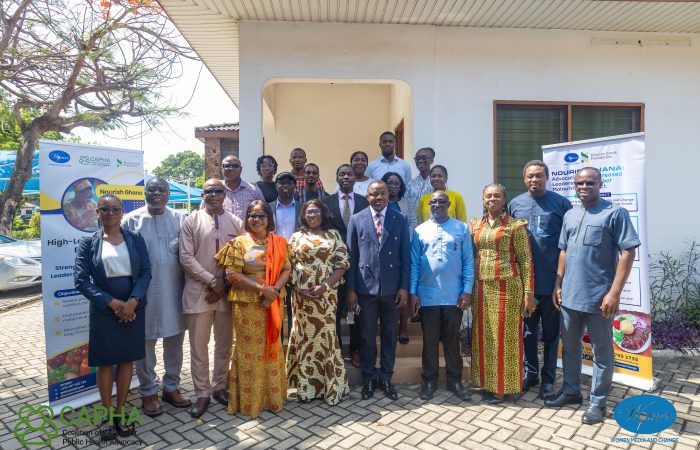Women, Media and Change (WOMEC), under the Nourish Ghana Project, joins the global
community in commemorating World Breastfeeding Week 2025, observed from August 1 to
7 under the theme: “Prioritize Breastfeeding, Create Sustainable Support Systems.”
Why Breastfeeding Matters
Breastfeeding provides unmatched health and is a vital tool in the fight against childhood
malnutrition. Breastmilk is a superfood—rich in diverse nutrients essential for healthy brain
development, intelligence, optimal growth, and protection against nutrition-related noncommunicable diseases such as diabetes later in life. It nurtures a generation of strong,
productive citizens essential for national development.
Breastfeeding in Ghana: The Numbers
Only 53% of infants in Ghana are exclusively breastfed currently—far below the WHO
global target of at least 50% by 2025.
This means over 40% of Ghana’s infants are deprived of this life-saving and
development-enhancing “superfood.”
According to national health statistics, Ghana still faces high rates of stunting (18.1%),
wasting (6.0%), and underweight (12.4%) in children under five.
These figures highlight the need for stronger support systems to ensure that mothers can
start and sustain exclusive breastfeeding, during the first six months of a child’s life.
Call to Action
WOMEC calls on:
The Ministry of Health and the Ghana Health Service to scale up breastfeeding-friendly
policies and training for health staff
The Ministry of Labour and Employment Relations and its agencies to expedite the
ratification of ILO Convention 183 and extend paid maternity leave
The Media to share accurate, evidence-based information on breastfeeding and refrain
from promoting substitutes to breastmilk
Communities and families to encourage and support mothers to practice exclusive
breastfeeding during the first six months of life
The Nourish Ghana project seeks to strengthen national policy actions on nutrition,
ensuring that decision-makers prioritize investments in high-impact nutrition interventions.


